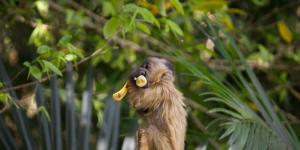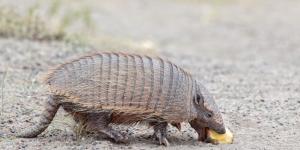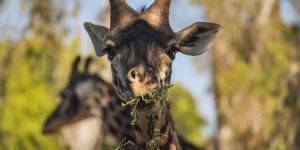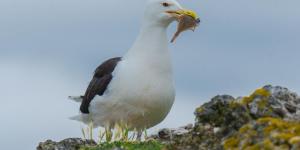What Do Cockatiels Eat?

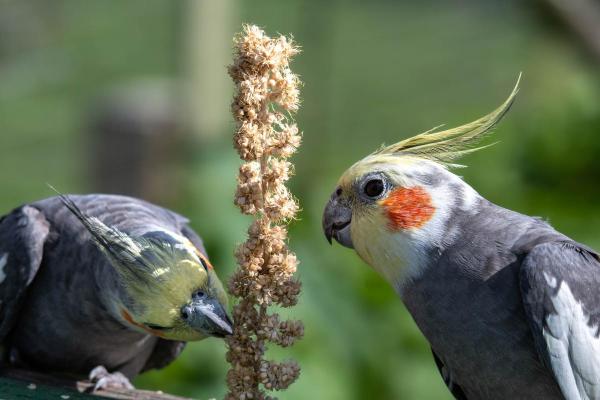
Cockatiels make great pets with their captivating personalities and beautiful plumage. They are also granivorous birds, which means that their diet primarily consists of seeds. However, it's important to provide them with a balanced and varied diet to meet their nutritional needs and keep them mentally stimulated. This includes incorporating fresh fruits, vegetables, and leafy greens to ensure they receive essential nutrients. A well-rounded diet supports their overall well-being, including vibrant plumage and a strong immune system.
This AnimalWised article explores what cockatiels eat and how their ideal diet should be to maintain their health.
What do cockatiels eat in the wild?
Cockatiels (Nymphicus hollandicus) are small parrots native to the arid regions of Australia. They are known for their distinctive crests, which can be raised or lowered depending on their mood or level of excitement. In the wild, cockatiels typically inhabit open woodlands, scrublands, and dry regions, forming small flocks or family groups.
In their natural habitat, cockatiels have a varied diet that consists of both plant matter and insects. They have adapted to survive in arid environments, where they have developed a remarkable ability to find and utilize limited food resources.
They primarily feed on a variety of grass seeds, including those from native grasses, herbaceous plants, and even agricultural crops.
Furthermore, they also forage for leaf buds, flowers, nectar, and some fruits. Additionally, cockatiels supplement their diet with protein-rich insects and their larvae, which provide essential nutrients.
The availability of food sources in the wild varies throughout the year, influencing the cockatiels' diet. During breeding seasons or when raising their young, they may consume more protein-rich foods to support their increased energy requirements.
Be sure to check this other article, where we reveal the essential list of prohibited foods for cockatiels.
Why are cockatiels considered granivorous birds?
Cockatiels are often referred to as granivorous birds because seeds form a significant portion of their natural diet. Seeds are rich in energy and provide essential nutrients such as carbohydrates, fats, proteins, vitamins, and minerals.
The classification of cockatiels as granivorous stems from their strong beaks, which are well-suited for cracking and opening seeds. Their digestive system has adapted to efficiently process and extract nutrients from seeds. This adaptation allows them to thrive on a diet that is predominantly seed-based in the wild.
However, it's important to note that while seeds are a crucial component of their diet, cockatiels in the wild also consume other things, as mentioned in the previous section.
When it comes to pet cockatiels, it's essential to provide them with a balanced diet that goes beyond seeds alone. While seeds can still be a part of their diet, incorporating fresh fruits, vegetables, leafy greens, and occasional protein sources is necessary to ensure they receive a diverse range of nutrients. This helps prevent nutritional deficiencies and promotes overall health and well-being.

Best diet for cockatiels
It is generally recommended that the diet of cockatiels kept in captivity closely resembles their natural diet in the wild. When considering their diet, it is important not only to meet their nutritional needs but also to encourage their selective behaviors and provide mental and sensory stimulation.
To achieve this, the cockatiels' diet should consist of a combination of different food groups in the appropriate proportions. These groups include feed, fruits and vegetables, and other foods. Here's a detailed breakdown of each group:
- Feed: feed should constitute around 30% of the daily diet by weight, which translates to approximately 5-10 grams per nymph per day. A complete feed selected and adapted to the specific needs of the cockatiels should be chosen. It provides essential nutrients such as amino acids, fatty acids, vitamins, and minerals.
- Fruits and vegetables: fruits and vegetables should make up around 40% of the daily diet by weight, equivalent to approximately 8-12 grams per nymph per day. They serve as a valuable source of vitamins and minerals, but their primary role in the cockatiels' diet is to provide variety and enrichment.
Specifically, the fraction of fruits and vegetables in the cockatiels' diet should consist of:
- 35% fruits and vegetables rich in carotenes, such as: papaya, carrot, pumpkin, tomato, and red pepper.
- 25% fruits and vegetables rich in vitamin C, such as orange, green pepper, and broccoli.
- 20% green leafy vegetables, such as spinach, lamb's lettuce, watercress, arugula, escarole, kale, etc.
- 20% other vegetables, such as peach, apple, celery, fennel, radish, turnip, leek, green beans, etc.
To ensure dietary variety, it is recommended to provide a fruit or vegetable from each of these four groups daily.
Other foods
To ensure a balanced diet, approximately 30% of the cockatiels' daily diet should consist of other foods, totaling around 5-10 grams per day. However, it's important to note that seed mixtures and bread should be limited to 3-5 grams per day per nymph.
The other foods group offers energy-rich options that contribute to completing and balancing their diet. These include cooked pasta, rice or legumes, preferably whole and unsalted bread, seed mixes, germinated foods, cooked quinoa, boiled eggs (preferably with the shell), dairy products like unsalted fresh cheese or natural yogurt, and a variety of nuts.
Incorporating these diverse food options ensures that cockatiels receive a range of nutrients and helps promote their overall health and well-being.
You may find this article intriguing, as it offers insights into understanding your cockatiel's behavior and expressions.
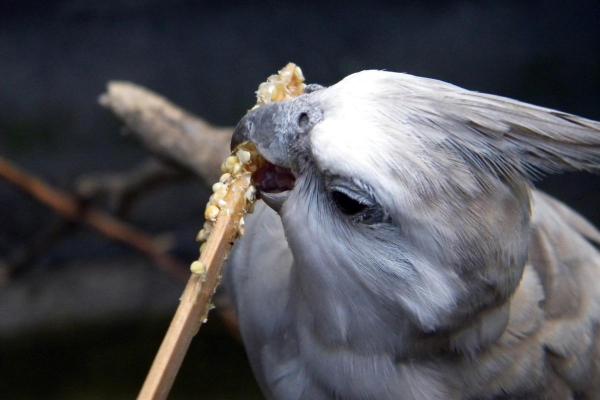
Best diet for chick cockatiels
Typically, cockatiel chicks stay with their parents for the first 20-25 days of their lives, during which the parents take care of their feeding. However, in cases of parental death or illness, keepers may need to hand-raise the chicks from hatching.
When hand-raising cockatiel chicks, it's important to feed them a specially formulated formula following the guidelines below:
- Days 1 to 4: feed every 2 hours with 1-2 ml per dose at a temperature of approximately 35ºC.
- Days 5 to 7: feed every 3 hours with 2-3 ml per dose at a temperature of around 35ºC.
- Days 8 to 14: provide 5 feedings per day with 4-6 ml per dose at a temperature of about 32ºC.
- Days 15 to 20: offer 4 feedings per day with 7-10 ml per dose at a temperature of around 32ºC.
From this point onwards, whether the chicks were separated from their parents or hand-reared from birth, they should be fed according to the following schedule:
- Days 20 to 35: provide 3 feedings per day with 12-15 ml per dose at a temperature of approximately 32ºC.
- Days 35 to 45: offer 2 feedings per day with 15 ml per dose at a temperature of about 32ºC.
- Days 45 to 60 (weaning phase): feed once a day with an amount that fills the crop, at a temperature of around 32ºC.
How to feed a cockatiel chick?
The porridge should have a custard-like consistency, neither too runny nor too thick, and should be administered using a syringe without a needle.
Gently brush the syringe against the chick's beak to stimulate feeding. When the chick opens its beak, deposit small amounts of porridge, allowing it to swallow before giving more. After each feeding, clean the beak and any stained feathers thoroughly. Discard any remaining porridge.
Once the cockatiels reach one month of age, it is advisable to gradually introduce them to the foods that will be part of their future diet, including breeding paste, feed, fruits, vegetables, and seed mixes. It's also a good time to introduce water drinkers, so they can become accustomed to them.
By the time cockatiels reach two months of age, they should be fully weaned, meaning they no longer rely on porridge for feeding. Their diet should align with the recommendations mentioned in the earlier sections of this article.
Don't forget to check out this informative article where we discuss the primary distinctions between female and male cockatiels.
If you want to read similar articles to What Do Cockatiels Eat?, we recommend you visit our Healthy diets category.

